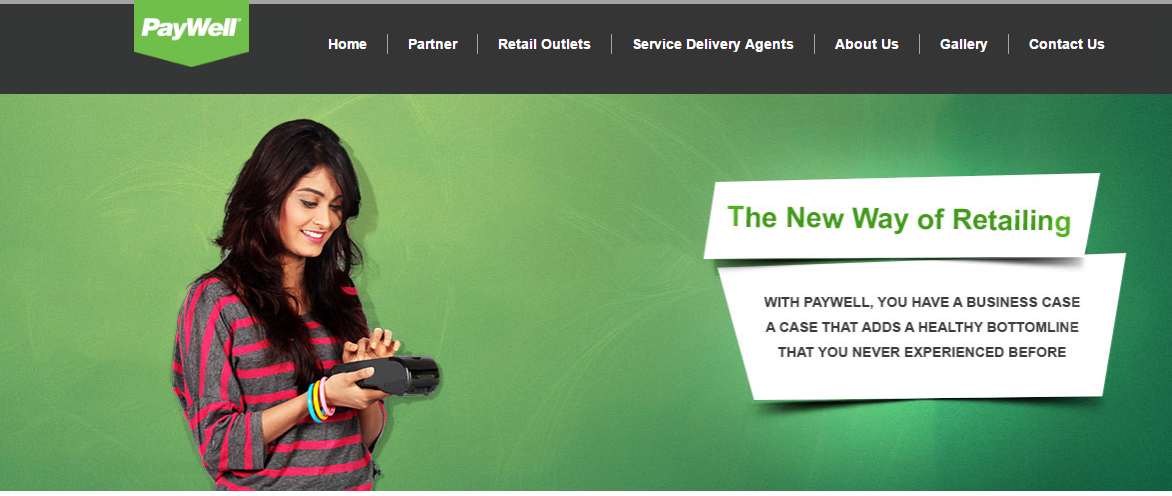
Founded by Anisul Islam, CloudWell, the Dhaka-based startup that runs payment, and service aggregator platform PayWell, started its operation in 2012 with a team of 12 people and 4/5 part-time salesmen. Over the past years, it has evolved meaningfully. The team size has grown. The product has evolved. And the company has expanded to build partnerships with ecommerce and MFS services and expanded its agent network.
In this story, we learn from CloudWell founder and CEO Anisul Islam about how PayWell came into being and how the company has evolved into what it is today. This is an excerpt from our interview with Mr. Anisul Islam published in 2018. You may read the full interview here.
The many lives of an idea
I started my career at CyberN, an IBM partner, in 1999 as a Server support specialist working with different technologies such as as-Linux and IBM systems. In 2000, I joined British American Tobacco’s IT division where I worked till 2006. At BAT, I conducted a lot of experiments with programming and started to shift my passion toward contributing to the bottom and top-line of a company.
In fact, these attempts of exploration made me think that with my own organization I would have the opportunity to do more and could contribute to the national development. In 2007, I joined a textile entrepreneur to further my understanding of business. The venture was called SSL Wireless. Its motto was to deliver various mobile-based value-added services to consumers.
Back then, mobile phones were being used as a mere person-to-person communication device. But we saw a host of opportunities that one could do using mobile phones which were largely overlooked in Bangladesh. We first introduced audience voting via cell phones and SMS news services and SMS banking in the country.
Within two years most of the TV channels were using our service for sending real-time breaking news through SMS. 15 banks were also connected with us in real-time because we were the first one to provide transaction data to the customers through SMS so that they could instantly know what was going on with their accounts. Today, that is what we know as SMS banking.
In 2011, we started to deploy a payment gateway for merchants jointly with Dutch Bangla Bank Limited. It is currently one of the top merchant payment gateways in the country, thanks to the SSLCOMMERZ team.
After 2012, I started to extend my focus to the e-commerce sector in Bangladesh. I examined the data and found out that at SSLCOMMERZ, we have done business with an estimated 10,000 people among whom a significant number were expatriates. The local people were not transacting enough. It means people were not using their credit cards online.
This problem or gap, if you say, made us, my partner, Faizul and I, to undertake a venture which will try to bridge this gap and seek to educate people about e-commerce and its possibilities. That decision was later translated into this online service delivery model through an organized retail network called PayWell.
It’s a project under Cloud Well Limited. We aggregate different types of services in the same process as happens in the case of online portals and web stores. Anyone can access PayWell via its portal paywellonline.com. There is still no option for credit and debit card transactions but it will be available very soon. Currently, there are options for MFSs and cash payments.
The beginning of CloudWell: Bring ideas to life is often a process
When we first started to look into this in 2012, we were thinking of reaching our customers through a vehicle. We thought that it would be a retailer-assisted model where the end-users won’t need to do the work by themselves.
The service would be provided by, for example, a neighborhood agent who would use our tool to serve the customers. To develop this tool, we studied several models practiced in different countries and fixed a benchmark for us. We brought a standard POS terminal which is mainly a service delivery tool and accepts credit and debit cards as well.
We primarily partnered with some 20-30 agents for beta testing. We started our pilot project in October 2013 in different areas of Gazipur and Dhaka. Fortunately, the model was taken very positively by the people and it became a hit. Within four months, we were able to convince the mobile operators in the country to get into the system.
They were connected to us via API. And we connect our retailers through the GPRS system. So, when retailers make requests to us from their device, we receive a notification and then validate them. Then we transfer it to respective telecom operators; and, when they finish processing it they send it back to us. As the last course of action, we finally transmit the processed request back to the retailer. The POS terminal also allows retailers to print the results out.
We also provide a solution to those who cannot afford POS terminals: an android app since March 2014. It can easily be downloaded from Google Play store. The only difference between the POS terminal and the android app is that you can’t print with the latter one. Other things are the same for both tools.
As for our end-users, the greatest benefit they get is accessibility. They can avail an array of services from a single platform and point. It saves time, money and effort.
You need to pay the Polli Bidyut bill, you can get it here. You want bus or train tickets, well, we are here for you. We also take NID alteration requests and payments of passport bills. You name it. Over the years we aim to add more services.
Go Deeper: read our previous coverages of CloudWell and PayWell here.
